Those are the three words which drive CEU Advertising graduate David Rodríguez in his new role: Director of Strategic Planning at Cheil Worldwide in Spain. Down-to-earth, inquisitive and versatile, his advice to the creative people of tomorrow is to squeeze everything they can out of the opportunities university and life in general offers.
David Rodríguez is convinced of the usefulness of failure and believes that advertising is a powerful weapon which can help the world to become a better place.
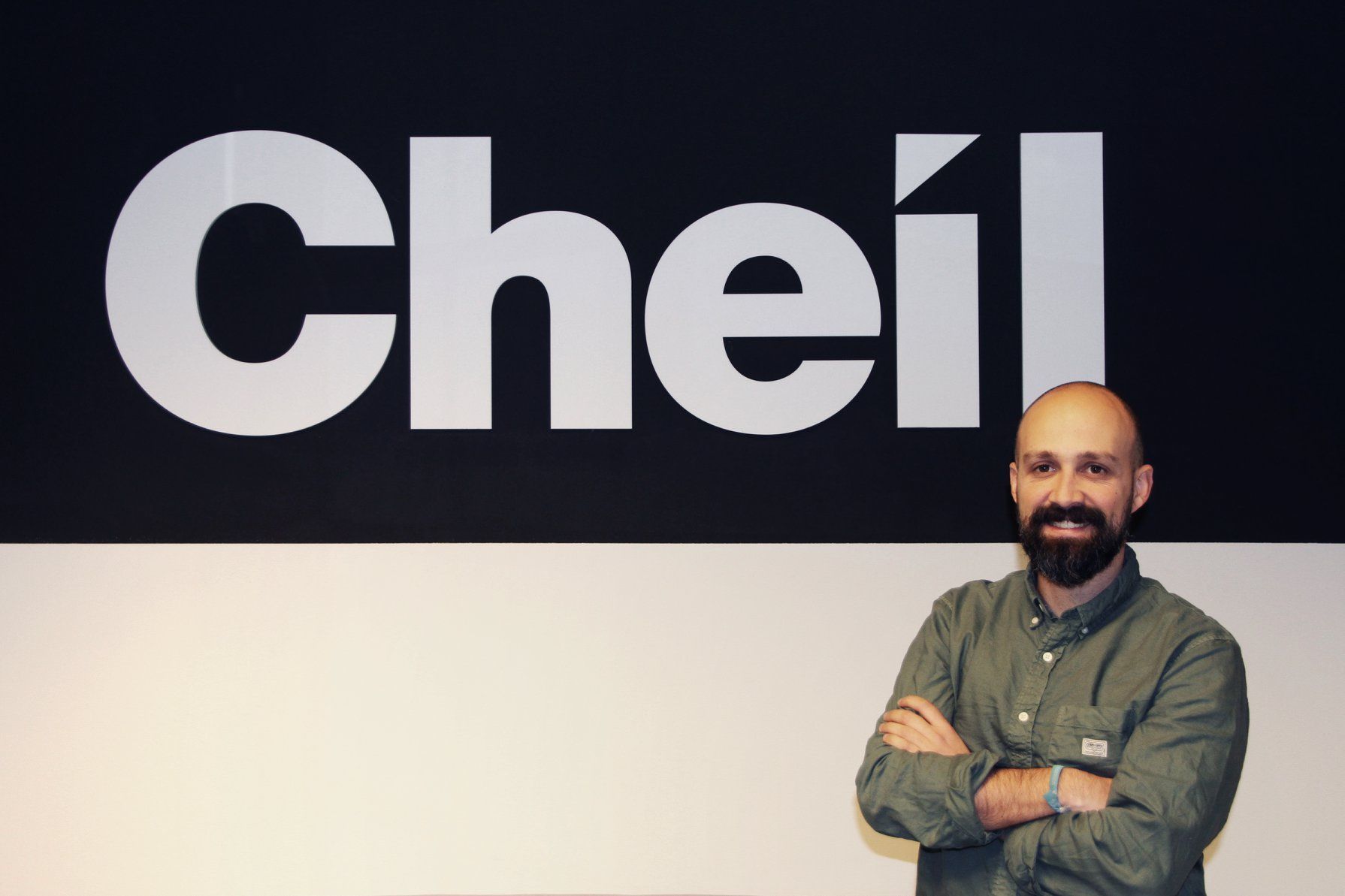 What’s it like to have responsibility for strategic planning at a multi-award-winning international agency which works with clients like Samsung and Adidas?
What’s it like to have responsibility for strategic planning at a multi-award-winning international agency which works with clients like Samsung and Adidas?
I don’t really feel the pressure of responsibility. In the end, what we do is basically adverts and campaigns which, at most, when we get things absolutely right, can have an impact on 10% of a company’s turnover. It’s not that important.
Which is not to say that I don’t care. I want to do my job well and we put a lot of hours in to get the best possible result. But I don’t know if we should talk about “responsibility” as such. Certainly, it’s not the same kind of responsibility as that which other professionals have, such as doctors, teachers or firefighters, to mention just a few examples. That’s real responsibility – much more than what I have in advertising.
‘I think the main thing i have to offer is that i’ve worked as a creative and I’ve run my own company, so i can resolve business problems with ideas, helping brands to connect with people better.’
What would be the right way to describe your job?
It’s exciting, challenging and thought-provoking. I’m excited about being able to help Samsung and the rest of the companies I work with to be brands that form a real part of people’s lives, by making them feel more relevant to them.
It’s challenging in the sense that I need to be useful to everyone: clients, creatives and accounts.
And it’s thought-provoking because I want to know how we can build a different kind of agency, one that doesn’t just make adverts, but is also able to find creative solutions to business problems, bringing together and analysing information and data from different sources, retail, campaigns, digital browsing, events, etc. I think that is the great challenge for planners today.
‘THE LECTURERS WERE THE ONES WHO REALLY GOT ME HOOKED ON ADVERTISING. IT REALLY IS AN ADDICTION NOW. AND NOW I KNOW IT’S BECAUSE THEY’RE HOOKED ON IT TOO, JUST AS I AM OR EVEN MORE.’
Why do you think they recruited you? What difference do you think you can make?
We’re all special and peculiar in our own way. Each of us are on a different journey, meeting different people and having different experiences.
I’ve been on my own particular journey which has led me to this point, which is no better nor worse than any other, but it is mine, when all’s said and done. And, on my way, I’ve been lucky to do a range of things, which are different from each other but which also have a connection between them.
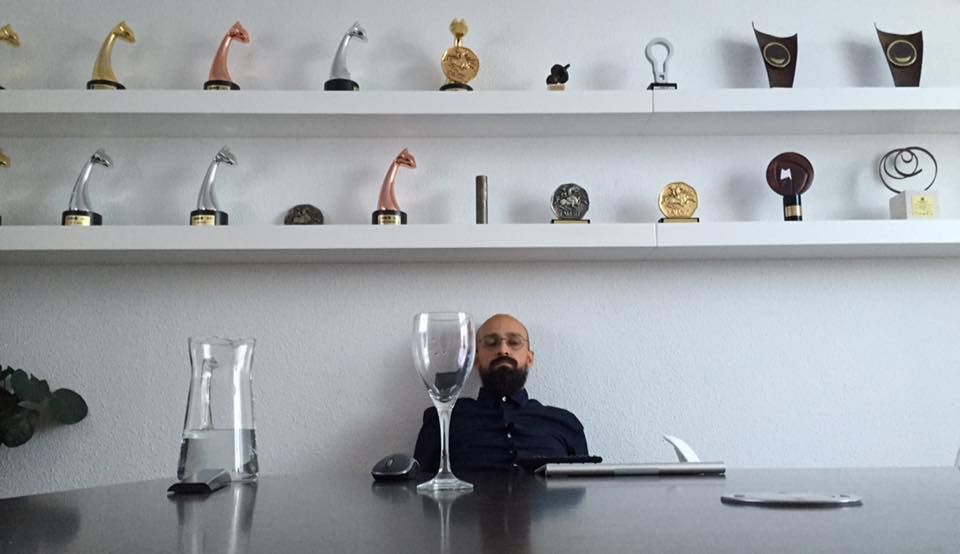 For example?
For example?
I’ve worked as a creative in traditional digital advertising agencies. That’s where I learnt to think in a different way, gaining a creative outlook that I still cultivate, and I worked with some people who were much sharper than me. They made me see that my mind is more analytical than it is intuitive.
Afterwards I started my own company, getting first-hand experience of the difficulties involved. During that stage of my career, I learnt how to understand the industries my clients are involved in, how to take care of the business an agency has, and how to place creativity within a broader context rather than simply that of advertising. I discovered what we might call the big picture.
After these two experiences of working as a creative and as an entrepreneur, I discovered planning, the kind of work I feel most comfortable doing. So far, at least.
And that’s really what I can bring to the table. I’ve been worked as a creative and I’ve run my own company, and so I can resolve business problems with ideas, helping brands to connect better with people.
‘I don’t accept the idea that my journey has been littered with success. I treasure my failures much more than my successes. and that makes me happy.’
What challenges have you set yourself in the medium and long term now that you’re in charge of planning?
To understand what the real potential is of what everyone now knows as “Big Data”. Today, very few brands, if any, are able to standardize, organize, categorize and use the huge quantity of data available to them.
Data on user behaviour, sales data, product-use data, third-party data – when we can bring all this together on a single platform to test hypotheses which can give us new and valuable insights, that’s when we will enter a new era for marketing and communication.
We’re not there yet. But we’re close. In the meantime, I’m happy if all the work that comes out of Cheil falls within a strategic framework, has clear objectives and appealing ideas based on real human insight, grows the client’s business and improves people’s lives. That’s enough to be going on with.
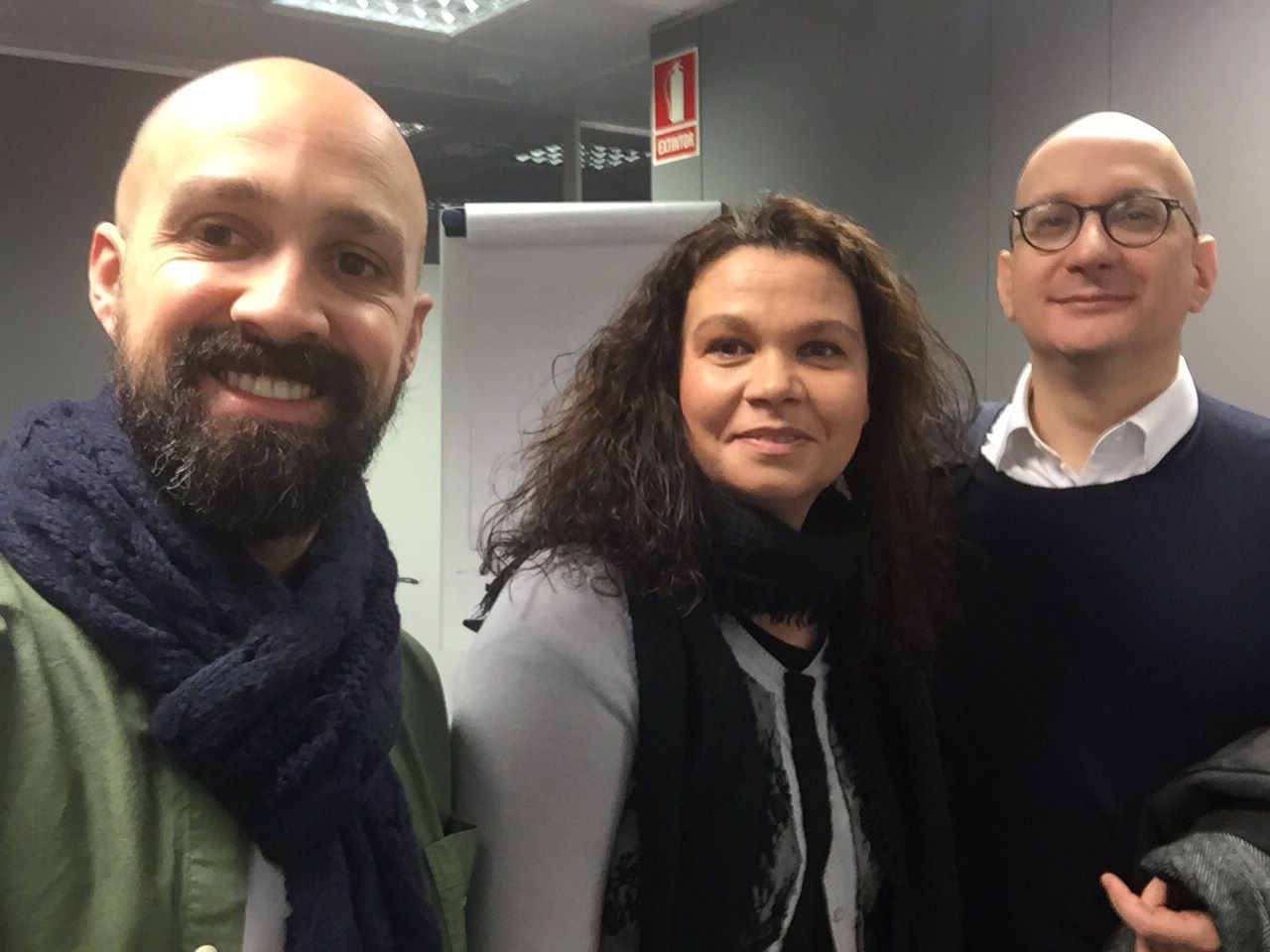 It’s quite enough to be going on with. You graduated just eight years ago and your career has been littered with success since then. Agulla and Baccetti’s El Cielo in Buenos Aires, DoubleYou in Barcelona, Serviceplan in Madrid, J. Walter Thompson in Madrid and Barcelona. How have you achieved all this?
It’s quite enough to be going on with. You graduated just eight years ago and your career has been littered with success since then. Agulla and Baccetti’s El Cielo in Buenos Aires, DoubleYou in Barcelona, Serviceplan in Madrid, J. Walter Thompson in Madrid and Barcelona. How have you achieved all this?
I don’t accept the idea that my career has been littered with success. The fact is that I treasure my failures much more than I do my successes. And that makes me happy. I think that my brief career is an example of a relatively erratic search for something which I’m not sure if I’ve found yet.
I have fun working in communication, but I’m never sure if I could be doing something more interesting, which I might find more fulfilling and interesting. Maybe that’s why I’ve worked in so many different places and it’s sure to be why I’ve never stuck around for long. Because I’m always looking for the next thing which will allow me to grow.
What role did placements play in kick-starting your career? Did you take advantage of the ones offered to you by CEU?
During my degree, I started to learn my real trade was. And in fact it’s the only trade that really exists: to use your wits to get by. The University offered me a series of opportunities, some of which I took advantage of and others, I’m sure, I let slip through my fingers. But one of the opportunities I took gave me the chance to do a placement in Buenos Aires.
CEU took part in an advertising festival called The Cup, and so at that event I was able to rub shoulders for a few days with some real advertising legends such as Marcello Serpa, Rafa Antón, Tham Khai Meng, Stefan Sagmeister, Toni Segarra and Carlos Baccetti, amongst many others. The latter, Carlitos, invited me to come to his agency and I went. Without a second thought.
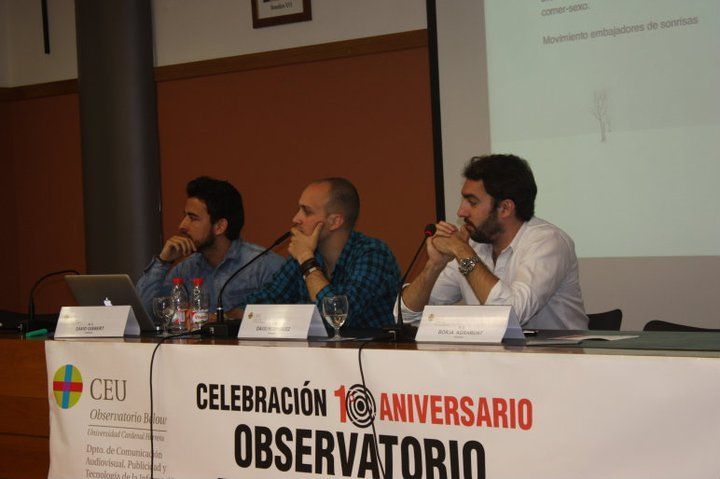 That might well inspire a few Advertising students!
That might well inspire a few Advertising students!
I’m not trying to be anyone’s role model. I’d just like to encourage them not to wait for the University to put the offer of a placement in front of them or anything like that.
Get out there and use your wits to squeeze as much as possible out of everything that life at university has to offer. Because life at work will be like that too. Or life in general, in fact.
You’ve got to get out there and make your own way in the world to get what you want. Nothing of real value will ever come down to you without having to work for it.
to current students: ‘get out there and use your wits to squeeze as much as possible out of everything that life at university has to offer. because life at work will be like that. and life in general too.’
Let’s keep talking about CEU. What do you remember from your time at university there?
Many things. The meals at Intos, the kebabs from Atlas, the burgers from Campus. I can see it now on Google Maps and I’m a bit jealous, because now I can see they’ve got seats outside… (laughs). Dear padawans, enjoy your time there, because it’s all over very quickly. I sound like an old man, but it’s true.
Seriously, the people I met are what I really value from my time there. The lecturers I had and the students I sat alongside.
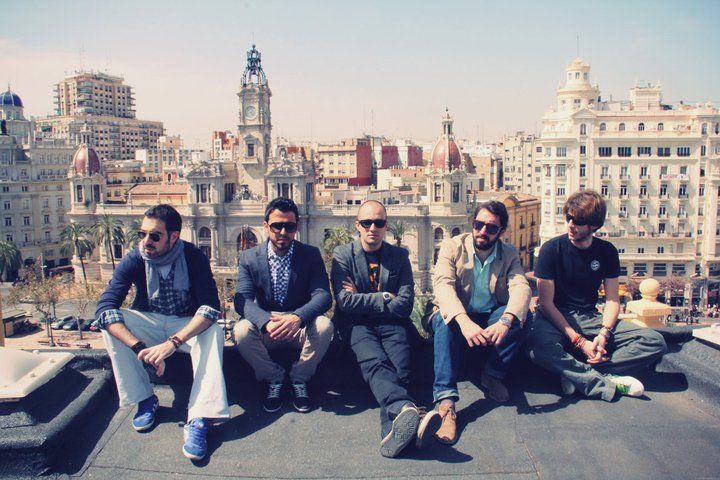 People like…
People like…
The lecturers who got me hooked on advertising. It really is an addiction now, but I know the reason for that is that they’re hooked on it too, like me or maybe even more. I was taken by Isabel de Salas’s energy and vitality; Pepe Martínez’s all-encompassing obsession with music, advertising, cinema, and culture; Amiguet’s idiosyncratic view on creativity; Chari’s charm and political incorrectness; Vicente Ros’s vision and ambition. And many others who have every right to be angry at not being mentioned because they deserve it too.
And then the other students I spent so much time with inspired me to be more like them. Many of them are very talented people with great careers in different areas. My great friend Joaquín Ruiz Quintanal and his unstoppable Montaña Studio; Manu Portillo and his amazing videos; Carlos Pérez Sahuquillo and his fantastic ideas. Guillermo Navarro and his wonderful La Mujer del Presidente… All of them, big names and real students of creative culture. A culture that CEU is so good at cultivating.
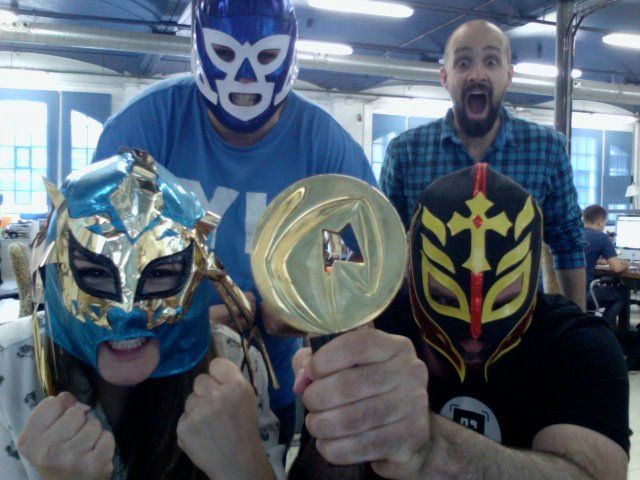
What about awards during your degree?
I’ve got a fantastic memory of my biggest failure as a student. During the first three stages of the Winner Decide programme, my team clearly led the way. Then, when we got to the last stage, the presentation stage, we flunked it, finishing a very well deserved last. We wanted to use live music during the presentation, making it difficult to understand what we were saying, we didn’t prepare what we were going to say properly, and the presentation itself was poorly structured.
We thought we’d won before the match had finished. Then we crashed and burned. Now, I look back and I’m grateful for that experience. It was a great antidote to over-confidence.
‘in the advertising industry we have the power to send very provocative, stimulating and stirring messages to a huge amount of people. let’s use this powerful resource in the right way.’
Without wishing to big you up too much, when did you realize that you were good at this?
Well, I swear I’m going to be honest. I’m not very sure I am good at this. Sometimes I think I’m a great impostor who hasn’t yet been found out. I compare myself with other much more experienced and talented planners and then I start thinking about what the hell I’m doing here if everyone else is so much better than me. I’m thinking of people like Adrián Mediavilla, Ramón Ollé, Agustín Soriano, Ugo Ceria, Guillermo Navarro, and Luis Miranda. They’re friends of mine and real masters of the trade who show me in every conversation that I’m still an apprentice whose best approach is to keep his mouth shut and take in everything they say like a sponge.
But, you know, maybe that’s what I do well. To have a mind like a sponge most of the time. Maybe that’s a good quality for a planner. Who knows?
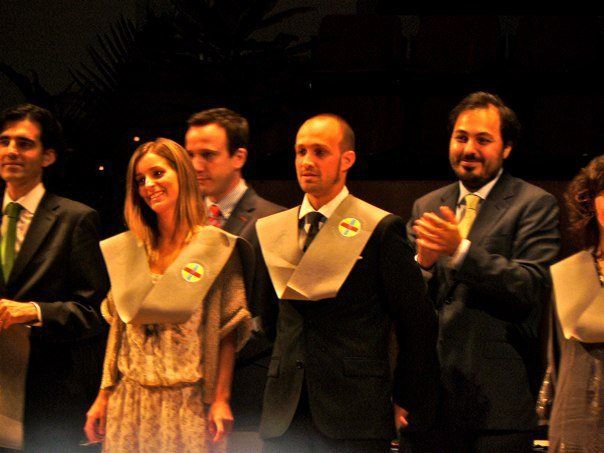 “The great thing about forming part of the advertising profession is the opportunity to reinvent it from the inside by constantly looking for new ways to connect good brands with the right customers and so to make the world a better place.” You said that. What influence does advertising have which can make the world a better place?
“The great thing about forming part of the advertising profession is the opportunity to reinvent it from the inside by constantly looking for new ways to connect good brands with the right customers and so to make the world a better place.” You said that. What influence does advertising have which can make the world a better place?
I didn’t know that I had said that, but, for once, I agree with myself. In fact, even though I’ve only been at Cheil two months, I already know that there are several examples at the agency of how advertising can exercise its influence to improve society. All of the “Tecnología con Propósito” (Technology with a Purpose) campaigns are examples of how Samsung, through technology, has been able to challenge and overcome the barriers that human beings face.
Apart from Cheil and Samsung, there are many other brands which are challenging deep-rooted beliefs in societies which need to change.
Campaigns like “Share the Load” in India for Ariel, “Like a Girl” in the USA for Always, “Leftover women” in China for SKII or “Deliciosa Calma” in Spain for Pavofrío are examples of those which seek to challenge the traditional role of women in society. to empower them and to enable them to gain the role they truly deserve. At the very least, as equals to men in everything.
At the end of the day, in advertising we have the power to send very provocative, stimulating and stirring messages to a huge amount of people. Let’s use this powerful resource in the right way.
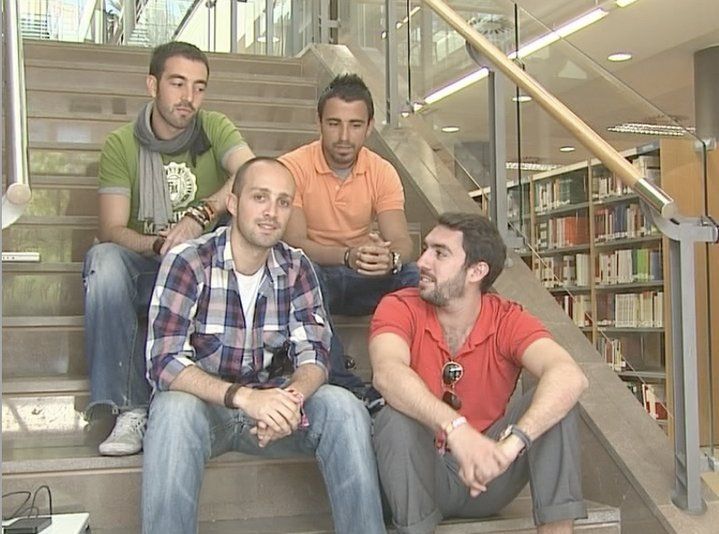 What direction is advertising heading in? What do you think the industry will be like in 10 years?
What direction is advertising heading in? What do you think the industry will be like in 10 years?
I’m sorry, but I can’t answer this question, because I haven’t got the foggiest idea. And I don’t think anyone does. The people who say they do are lying.
David, thank you very much.
Thank you.












